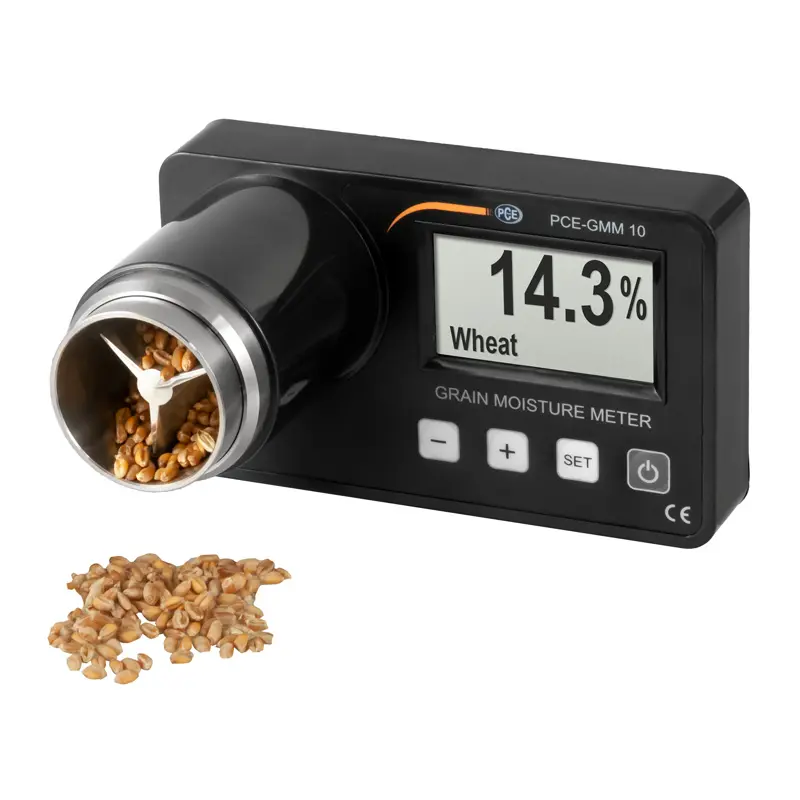Moisture Meter Purchasing Guide: What to Search for in High-Quality Instruments
Moisture Meter Purchasing Guide: What to Search for in High-Quality Instruments
Blog Article
The Ultimate Overview to Moisture Meters: A Comprehensive Overview and Just How They Can Save You Cash
Wetness meters offer as important devices in discovering and monitoring moisture content in products, aiding in preventing expensive problems and making sure the quality of items. Understanding the nuances of various kinds of dampness meters, their applications, and the prospective cost-saving advantages they supply can be a game-changer for professionals and companies alike.
Sorts Of Dampness Meters
One common type is the pin-type dampness meter, which measures the electrical resistance between 2 pins put right into a product. Pinless moisture meters, on the other hand, use electro-magnetic sensing unit plates to check a larger area without creating damages to the product's surface area.

Infrared wetness meters measure the thermal residential or commercial properties of a product to determine its wetness content non-invasively, making them valuable for applications where pin or pinless meters may not be appropriate. Recognizing the different kinds of dampness meters available can assist sectors choose the most proper device for their particular moisture measurement needs.

Benefits of Using Dampness Meters
Wetness meters supply indispensable benefits in precisely assessing and keeping track of moisture levels in varied products and atmospheres (Moisture Meter). One of the primary benefits of utilizing dampness meters is the avoidance of potential damage brought on by excess wetness. By identifying and dealing with high wetness levels early, dampness meters assist to avoid mold development, rot, and architectural damages in structures, conserving both time and cash on fixings. In addition, dampness meters help in ensuring the quality of materials during building and construction or manufacturing processes. By accurately measuring moisture content, these tools help keep the integrity of wood, drywall, concrete, and various other products, minimizing the risk of failures or defects.
Moreover, making use of wetness meters can lead to raised energy performance. In farming setups, moisture meters play a critical role in maximizing plant yields by allowing farmers to check soil wetness degrees and make informed irrigation choices.
How to Select the Right Wetness Meter
When selecting a dampness meter, it's necessary to guarantee that the meter is ideal for the particular product you will be screening. Different materials have differing electrical properties that can impact wetness readings, so picking a meter designed for your material is important for accurate results. By carefully assessing these aspects, you can pick a wetness meter that fulfills your needs and supplies accurate wetness dimensions for your tasks.
Appropriate Strategies for Wetness Meter Use

Expense Savings With Moisture Meter Applications
Exactly how can the calculated application of dampness meters bring about considerable expense savings throughout various sectors? Wetness meters play an important function in expense financial savings by preventing possible damages and making sure quality assurance in different fields. In the agriculture sector, moisture meters aid in figuring out the optimal time for collecting crops, stopping excess or over-drying moisture that can impact the end product's top quality. This specific monitoring helps farmers stay clear of unneeded losses and maximize their yield.
In a similar way, in construction, wetness meters help protect against pricey damages by identifying dampness levels in building materials, such as timber or concrete, which can lead to structural issues otherwise resolved quickly. By identifying problem locations at an early stage, professionals can take restorative measures to stay clear of comprehensive repairs or replacements, eventually conserving time and cash.
In addition, in the food processing industry, dampness meters are crucial for monitoring product high quality and ensuring conformity with safety and security guidelines. By precisely gauging moisture material in food, producers can prevent spoilage, maintain quality, and minimize waste, causing substantial cost savings. On the whole, the tactical application of wetness you could try these out meters is a beneficial investment that can lead to significant cost reductions and enhanced efficiency across numerous markets.
Conclusion
In conclusion, wetness meters are useful devices for measuring and finding dampness levels in different materials. By making use of the right dampness meter and complying with proper techniques, users can effectively stop pricey damages caused by excess dampness.
Moisture meters serve as essential tools in identifying and keeping an eye on moisture web content in products, helping in protecting against expensive damages and making sure the quality of products. Infrared dampness meters measure the thermal properties of a product to establish its dampness web content non-invasively, making them valuable for applications where pin or pinless meters may not be ideal.Dampness meters supply important advantages in properly keeping track of and examining moisture degrees in varied materials and settings. In farming setups, dampness meters play an important function in enhancing crop yields by enabling farmers to check dirt wetness levels and make notified watering decisions.In final thought, wetness meters are valuable devices for measuring and finding dampness levels in try this site various products.
Report this page